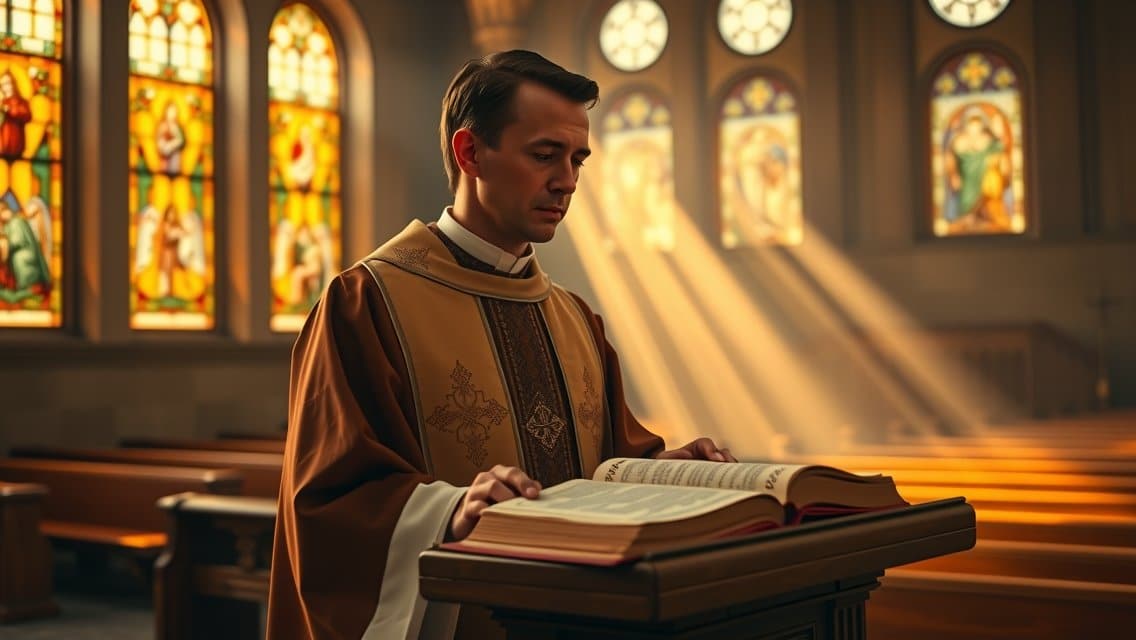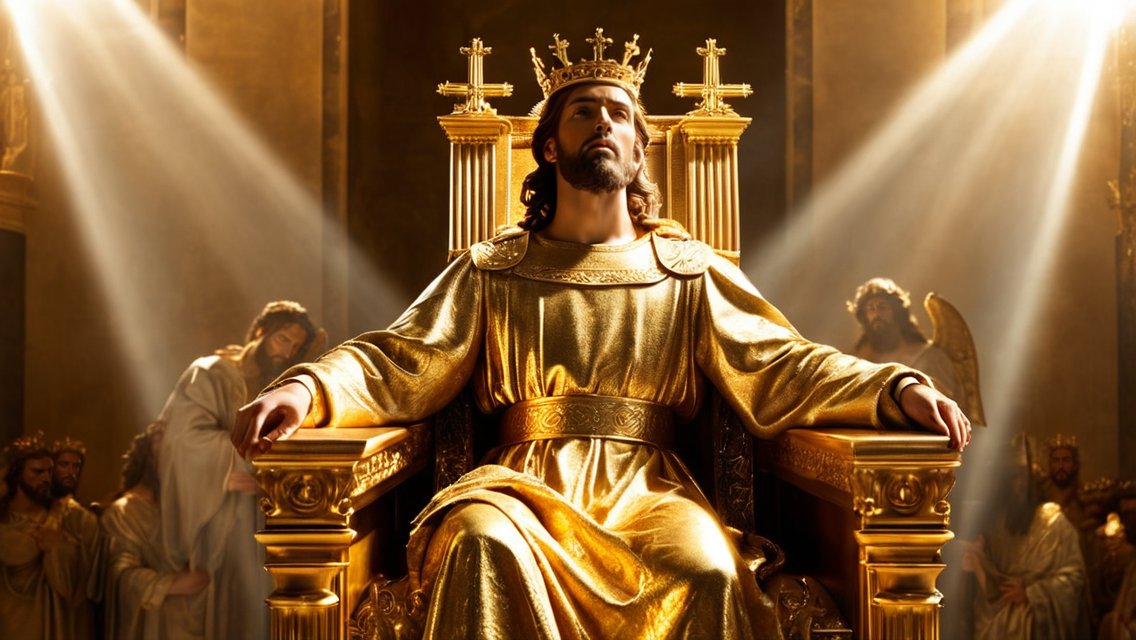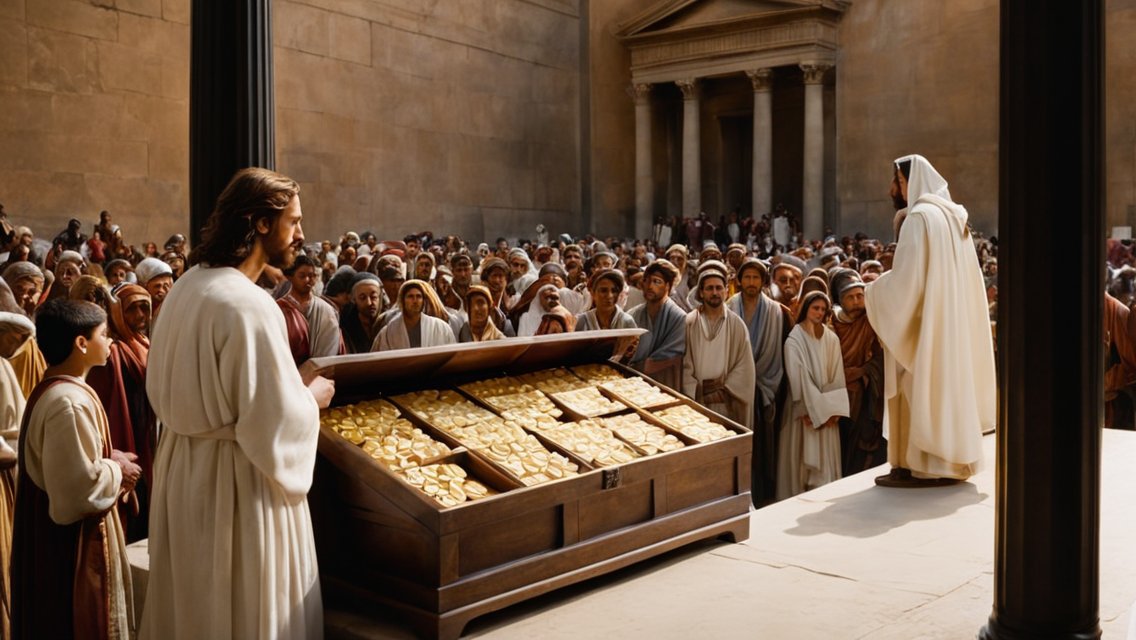9th Sunday Homily of the Ordinary Time – Year B
Readings: Deut 5:12-15, 2 Cor 4:6-11, Mk 2:23-3:6
1st Reading – Deuteronomy 5:12-15
12 Observe the sabbath day, keep it holy, as the LORD, your God, commanded you.
13 Six days you may labor and do all your work,
14 but the seventh day is a sabbath of the LORD your God. You shall not do any work, either you, your son or your daughter, your male or female slave, your ox or donkey or any work animal, or the resident alien within your gates, so that your male and female slave may rest as you do.
15 Remember that you too were once slaves in the land of Egypt, and the LORD, your God, brought you out from there with a strong hand and outstretched arm. That is why the LORD, your God, has commanded you to observe the sabbath day.
Responsorial Psalm – Psalms 81:3-4, 5-6, 7-8A, 10-11AB
R. Sing joyfully to God our strength.
3 Take up a melody, sound the timbrel,
the pleasant lyre with a harp.
4 Blow the shofar at the new moon,
at the full moon, on our solemn feast.
R. Sing joyfully to God our strength.
5 For this is a law for Israel,
an edict of the God of Jacob,
6 He made it a decree for Joseph
when he came out of the land of Egypt.
R. Sing joyfully to God our strength.
7 I heard a tongue I did not know:
“I removed his shoulder from the burden;
his hands moved away from the basket.
8A In distress you called and I rescued you;
R. Sing joyfully to God our strength.
10 There shall be no foreign god among you;
you shall not bow down to an alien god.
11AB ‘I am the LORD your God,
who brought you up from the land of Egypt.
R. Sing joyfully to God our strength.
2nd Reading – 2 Corinthians 4:6-11
6 For God who said, “Let light shine out of darkness,” has shone in our hearts to bring to light the knowledge of the glory of God on the face of Jesus Christ.
7 But we hold this treasure in earthen vessels, that the surpassing power may be of God and not from us.
8 We are afflicted in every way, but not constrained; perplexed, but not driven to despair

9 persecuted, but not abandoned; struck down, but not destroyed;
10 always carrying about in the body the dying of Jesus, so that the life of Jesus may also be manifested in our body.
11 For we who live are constantly being given up to death for the sake of Jesus, so that the life of Jesus may be manifested in our mortal flesh.
Alleluia – John 17:17
R. Alleluia, alleluia.
17 Your Word O Lord is Truth Sanctify us in the truth
R. Alleluia, alleluia.
Gospel – Mark 2:23-3:6
23 As he was passing through a field of grain on the sabbath, his disciples began to make a path while picking the heads of grain.
24 At this the Pharisees said to him, “Look, why are they doing what is unlawful on the sabbath?”
25 He said to them, “Have you never read what David did when he was in need and he and his companions were hungry?
26 How he went into the house of God when Abiathar was high priest and ate the bread of offering that only the priests could lawfully eat, and shared it with his companions?”
27 Then he said to them, “The sabbath was made for man, not man for the sabbath.
28 That is why the Son of Man is lord even of the sabbath.”
1 Again he entered the synagogue. There was a man there who had a withered hand.
2 They watched him closely to see if he would cure him on the sabbath so that they might accuse him.
3 He said to the man with the withered hand, “Come up here before us.”
4 Then he said to them, “Is it lawful to do good on the sabbath rather than to do evil, to save life rather than to destroy it?” But they remained silent.
5 Looking around at them with anger and grieved at their hardness of heart, he said to the man, “Stretch out your hand.” He stretched it out and his hand was restored.
6 The Pharisees went out and immediately took counsel with the Herodians against him to put him to death.
Homily
Thank God it’s Sunday!
“Observe the Sabbath day and keep it holy” (Deut)
A fisherman was relaxing on the seashore when a rich man rebuked him for not working. “Why should i work?” asked the fisherman. “Because if you work, you’ll catch fish,” explained the rich man. “What for?” asked the fisherman. The man replied, “You can sell the fish and make money.” The fisherman queried: “What to do with money?” The rich man replied, “With money you can buy a big catamaran and catch more fish.” “And then?” “Then,” continued the man, “You can sell more and more fish until you earn enough money for a luxury yacht.” The fisherman persisted: “And what’ll l do with the yacht?” The rich man replied: “You can relax and rest.” The fisherman smiled: “But, I’m already relaxing and resting!”
Jesus’ close disciples were fishermen who’d work 6 days a week and devote Sabbaths for dual purpose: {a} to visit the synagogue and (b) to rest at home. This practice had its roots in today’s first reading from Deuteronomy containing the 4th of the Ten Commandments. This 4th commandment is not merely some legal stipulation; rather, it was meant to be Israel’s grateful remembrance of what God did during their slavery in Egypt and ensuing Exodus. Thus, the words: “Remember, that you were servants … and the Lord brought you out…”
Another interpretation of the need for Sabbath observance is in the Book of Exodus (31:l7), namely, God created the world in six days and rested on the seventh. if God rested, shouldn’t we? Thus, Sabbaths – Sundays, today – can be said to achieve twin purposes: (a) to make holy, by prayer; and (b) to make whole, by rest.
The responsorial psalm (81) is a fitting response to the theme of Sabbath observance since it was used at the liturgy at therewith feast of Tabernacles (see Deut l6:13-15).’Together with the Passover, this feast was a memorial of the Exodus. Hence the appropriateness of this psalm as a response to the reading of the 4th commandment.
Today’s gospel contains two episodes that explain Jesus’ breach of the Sabbath rule. The first episode is a pronouncement story (see 29th Sunday, Year A) with the usual 3-fold structure: (l) the setting – the disciples are walking through the fields and plucking ears of grain on the Sabbath; (2) the action – the Pharisees object to this disregard of the Sabbath regulations; (3) the pronouncement – Jesus defends his disciples’ conduct by comparing it to David’s eating of the showbread during his flight from Saul. Note that each situation – namely, David’s and Jesus’ -was one of emergency and crisis in which regular rules were suspended. David was fleeing from Saul; and, in Jesus’ ministry the kingdom of God is irrupting. Therefore, Sabbath regulations are but secondary.
Jesus’ saying: “The Sabbath was made for man, not man for the Sabbath,” is so radically different from anything of contemporary Judaism of Jesus” time that no scholar would doubt that these are Jesus’ authentic words. Today, this saying could be interpreted indiscreetly to mean: “Only (wo)man is important, everything else is secondary.” More than being a mere humanistic saying, Jesus’ assertion points out to an integral salvation since God’s kingdom had, indeed, arrived in/with Jesus.
The “Thank God it’s Friday!” (TGIF) saying is popular in the West since most Western countries enjoy Saturday and Sunday as holidays. My pious uncle and aunt, Nigel and Delmira, once took me for a film bearing that name thinking that we’d view the Passion of Christ. They were alarmed that it turned out to be a film of youth dancing away at a discotheque! This, incidentally, shows the difference between Christianity in India and the West, wherein Western churches are empty, Sundays.
Many Christians use Sundays to flee far from the maddening crowds, so to say. Few go to Church to pray. Obligations apart, Sundays are also ‘Son-days’ when we remember how God’s Son saves us, and assemble as daughters and sons in The Son to worship God who saves. Let’s thank God for Sundays, then, and spend them in prayer; and like that laidback fisherman, let’s also rest. Not always on solitary seashores and in dark discotheques, but at home, with our families.





